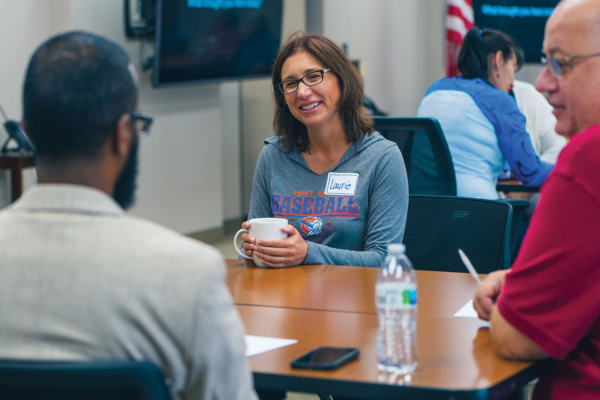Sowing Seeds Between Board Meetings
March 01, 2019
Board-Savvy Superintendent
Board of Education meetings have a high intensity. They are challenging even when they go well. This is because board members have divergent viewpoints, and they carry with them the cumulative emotions that have been gathering since the last school board meeting.
Cumulative emotions, if positive, allow board members an opportunity to channel their energy into sound insight necessary for good board governance. If negative, they run the risk of fueling a focus on issues, leading at best to micromanagement, if not mishandling.
To be successful, superintendents must leverage the talent that board members bring, avoiding the pitfalls that accumulated baggage can bring while ensuring their board members feel like heroes.
In The Hero Maker: How Superintendents Can Get Their School Boards to Do the Right Thing, my co-author Todd Whitaker and I offer a three-pronged approach superintendents can use to sow the seeds of positive relationships and harness positive energy between board meetings. There is little time for an “exhale.”
Constant Connections
Between board meetings, superintendents first must make a personal commitment to provide something for each board member — something not really in the job description but rather something kind and something nice. It could be a thank you note to a board member’s boss for allowing a timely departure from work each month to get to the board meeting on time. It could mean showing up at a community event a board member deems important personally, such as a local community theater event or a volunteer activity. It could mean letting the board member’s family know how lucky you feel to have their mom or dad, husband or wife serving in such an important role.
Superintendents also must feed the appetites of board members’ constituencies and intentionally be seen doing so. It means connecting with them emotionally and sharing a desire to make the community a better place.
This could happen as a conversation in the coffee shop with a hardware store owner, where the superintendent might share a concern regarding the big-box retailer coming to town. It could mean passing along the e-mail address of an elected official you know well, who could help leverage support for a new skate park for kids. It could be doing anything to form connections with those you know who hold influential positions, in support of the positive things that constituencies are doing, as long as the efforts are authentic and transparent. The key is being visible in a truly caring role — and not appearing as if you are motivated simply by being seen in public.
Finally, superintendents might schedule some personal time with at least one board member each month for a deeper and more positive relationship. This will provide superintendents with a better understanding of why board members are serving, what is truly important to them among the many things they are asked to consider and what makes them who they are.
Critical during these meetings are candid conversations about how the board member perceives things to be going in the district. The idea here is that by spending quality time with each board member, superintendents will make relationship “deposits,” so in the tougher moments, the “withdrawals” aren’t as severe. It also is a great way to get a barometric reading on a superintendent’s role as what Whitaker and I call a “Hero Maker,” as superintendents can determine how school board members are looking to others important to them.
Restarting Anew
The main point is that after each board meeting, a superintendent must minimize the exhale that comes as a natural byproduct of having done a great deed, won a big game, or dodged another bullet. The closing of the boardroom door brings an open window to the next 30 days of hero-making opportunities — sowing seeds before cumulative emotions again influence a group of well-intentioned policymakers sitting around the boardroom table.
Those who are valued on a consistent basis throughout the school year have less need for the spotlight each month. It is a Hero Maker’s job to ensure just that.
RYAN DONLAN, a former superintendent, is an associate professor of educational leadership at Indiana State University in Terre Haute, Ind.
@ryandonlan
Advertisement
Advertisement
Advertisement
Advertisement



